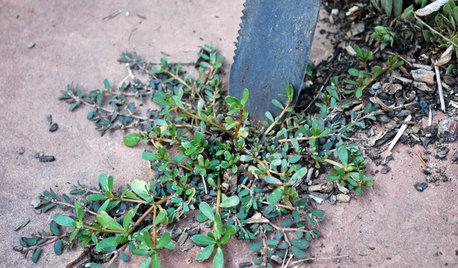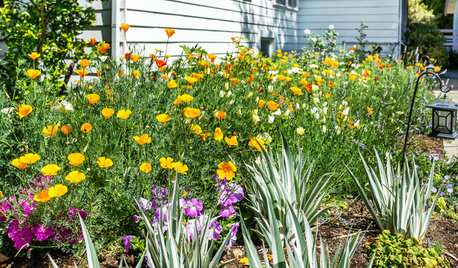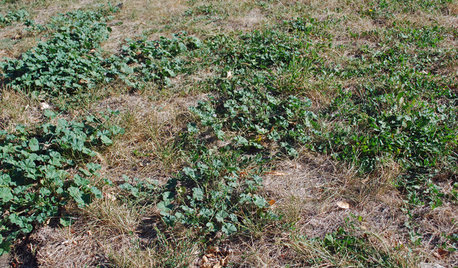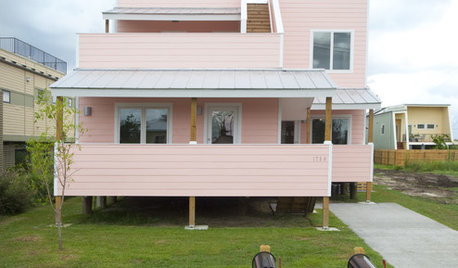Environmentally Conscious Weed Killing
rustygatefarm
18 years ago
Related Stories

GARDENING GUIDES5 Ways to Naturally Win the Weed War
Show irksome weeds no mercy with these tricks for combating them sans chemicals
Full Story
LANDSCAPE DESIGN10 Ideas for a Creative, Water-Conscious Yard
Check out these tips for a great-looking outdoor area that needs less water
Full Story
GARDENING GUIDESWeed War: When and How to Use Chemical Herbicides
Before you spray, arm yourself with knowledge about which weed killers — natural or synthetic — are right for your yard
Full Story
CONTEMPORARY HOMESFrank Gehry Helps 'Make It Right' in New Orleans
Hurricane Katrina survivors get a colorful, environmentally friendly duplex, courtesy of a starchitect and a star
Full Story
GARDENING GUIDES7 Ecofriendly Gardening Ideas That Also Cut Chore Time
Spend less time weeding, less money watering and more moments just sitting back and enjoying your healthy garden
Full Story
LANDSCAPE DESIGN15 Great Ideas for a Lawn-Free Yard
End the turf war for good with hardscaping, native grasses and ground covers that save water and are easier to maintain
Full Story
LIFEThe Top 5 Ways to Save Water at Home
Get on the fast track to preserving a valuable resource and saving money too with these smart, effective strategies
Full Story
DECKSA Family-Friendly California Yard Wises Up About Water
Pavers and unthirsty plants replace Kentucky bluegrass in a Menlo Park landscape for a family of 4
Full Story
EARTH DAYThe Case for Losing the Traditional Lawn
Work less, help the environment and foster connections by just saying no to typical turf
Full Story
SAVING WATERXeriscape Gardens: How to Get a Beautiful Landscape With Less Water
Conserve water and make gardening much easier with the xeriscape approach’s 7 principles
Full Story





wardw
ladychroe
Related Professionals
Canton Landscape Contractors · Fairfield Landscape Contractors · Fairhope Landscape Contractors · Hollywood Landscape Contractors · North Chicago Landscape Contractors · Pine Hills Landscape Contractors · San Bruno Landscape Contractors · Quartz Hill Landscape Contractors · Palos Heights Landscape Contractors · La Verne Swimming Pool Builders · Rancho Cordova Swimming Pool Builders · Channahon Fence Contractors · Manorville Fence Contractors · Statesville Fence Contractors · Whittier Fence ContractorsAnnie_nj
jrzgurl
ellenr22 - NJ - Zone 6b/7a
wardw
rustygatefarmOriginal Author
sharpshin
jimcnj
newbirdman
Annie_nj
mucknmire
flowersandthings